How many times have you heard the market is shifting to eCommerce?
A countless number, and it's all true. Amidst this surging wave, have you equipped your eCommerce business with tech tools that match the evolving customer expectations? One such marvel is a WhatsApp chatbot.
WhatsApp, with over 2 billion users, has become a colossal digital plaza, creating a perfect space for businesses to interact seamlessly with consumers.
Its chatbot functionality places the power of AI into your business, enabling instant, tailor-made support. Imagine clarifying queries, suggesting products, and facilitating orders at a never-seen-before pace. Confused about how to deploy this?
Our comprehensive guide dives into everything about implementing a WhatsApp chatbot in eCommerce. We've scrutinized all aspects, from why it's the next big thing to how you can ensure privacy and compliance while outshining customer service.
It's about time we rethink eCommerce strategies. With this guide, let's unlock endless possibilities and create an innovative shopping journey for your customers. Are you on board to explore this game-changer?
What is WhatsApp Chatbot?
WhatsApp Chatbot is an AI tool that automates conversations on WhatsApp.
It enables businesses to communicate with their customers in real-time even when human support isn’t available.
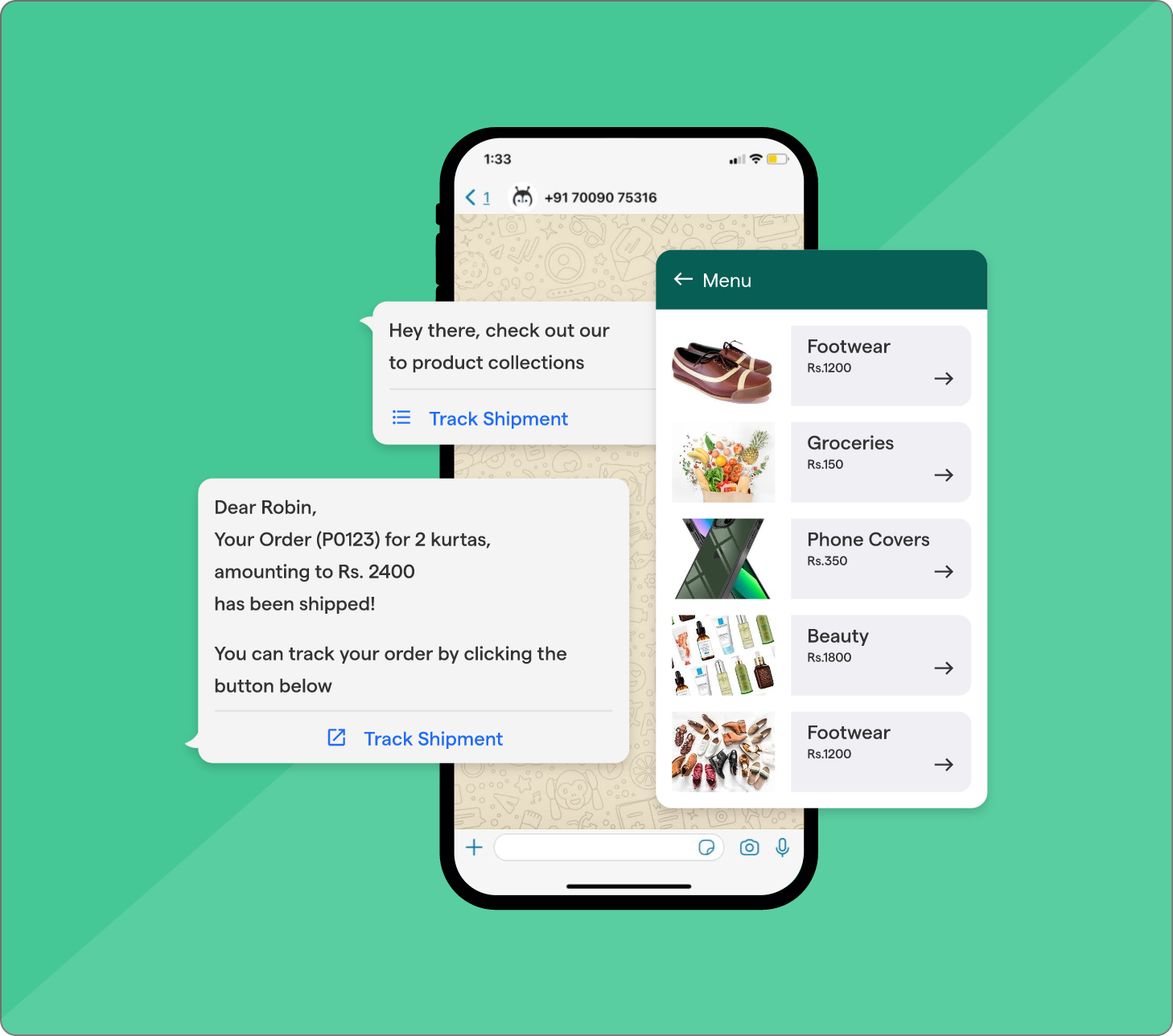
It helps brands interact with their customers more effectively and efficiently.
Importance of Chatbots for E-commerce Businesses
E-commerce businesses are mostly online, meaning customer interactions are digital. Chatbots have thus become integral to eCommerce businesses, and for good reason.
Firstly, chatbots ensure that customers get timely responses, irrespective of the day or time. Secondly, chatbots can handle multiple queries simultaneously, which saves a lot of time and energy.
Thirdly, they are cost-effective compared to hiring and training a human support team from scratch.
Benefits of WhatsApp Chatbots for eCommerce
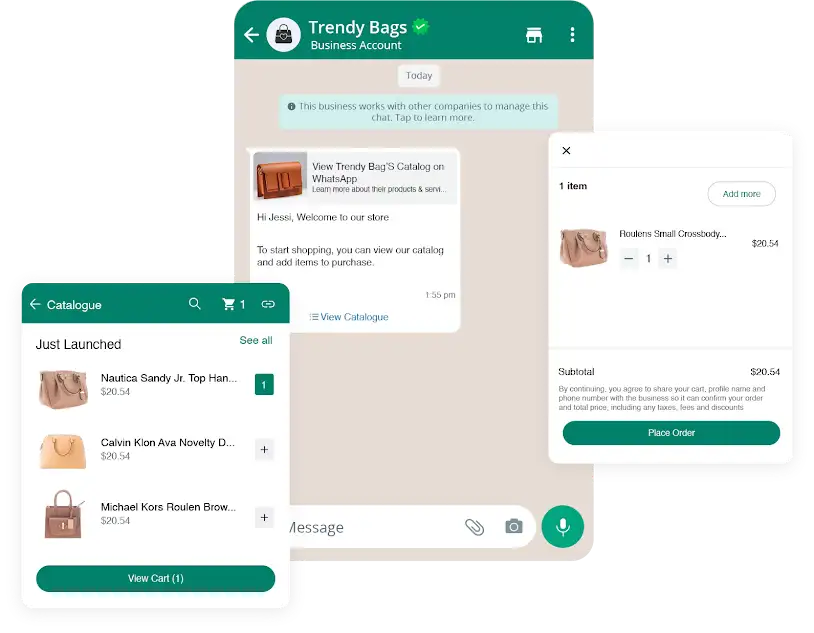
As discussed earlier, WhatsApp Chatbots are becoming increasingly popular for e-commerce businesses. Here’s why:
Improved Customer Service and Support
Immediate assistance is crucial for building a good relationship between customers and businesses.
With WhatsApp Chatbots, customers can get their queries resolved within seconds, which saves them time and builds trust and loyalty.
These chatbots can handle almost any query related to product information, shipping details, and payment methods.
Enhanced User Experience
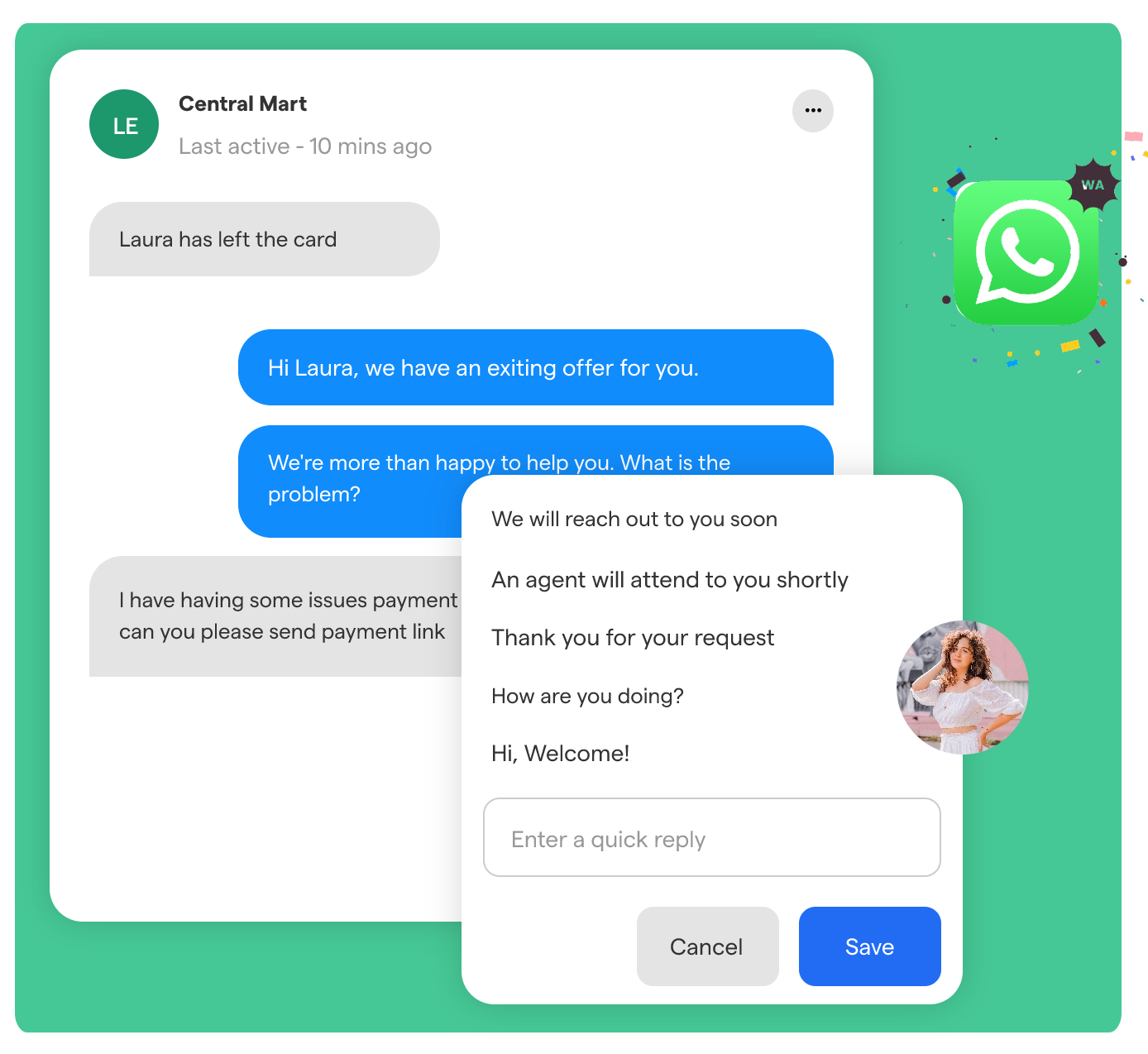
One key aspect of customer support is enabling seamless self-service. With WhatsApp Chatbots, customers can place orders, check order status, request a refund, and do much more without human intervention.
The chatbot experience can also be customized based on customer preferences and learning from previous interactions, thus enhancing user experience.
Streamlined Order Management and Tracking
Order management can be chaotic when it’s done manually. The use of chatbots can make it simpler and quicker.
Chatbots can carry out the entire order process, from booking to managing payments, delivery status, and returns.
By handling customer orders, chatbots can free up the human support team to focus on more complex tasks.
Personalized Recommendations and Product Suggestions
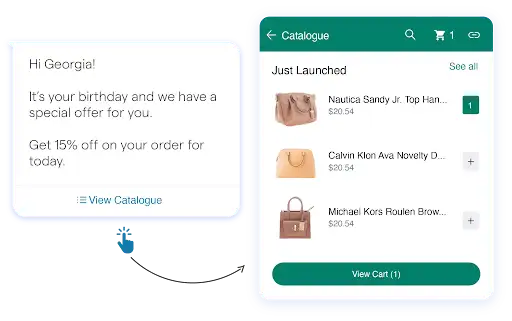
With chatbots analyzing customer data, they have insights into the buyer’s preference and previous purchase history.
Based on that, they can provide personalized product recommendations, boosting cross-sales or upsells.
How WhatsApp Chatbots Work?
For businesses that want to provide exceptional customer service and support, it’s important to understand how WhatsApp Chatbots work. Let’s take a look:
Introduction to Conversational AI
In simple terms, conversational AI refers to a set of technologies enabling chatbots to converse with humans.
Conversational AI incorporates numerous technologies like natural language processing (NLP), machine learning, and data processing to make chatbots intuitive and capable of providing efficient support.
Integration of Chatbots with WhatsApp
To integrate chatbots with WhatsApp, certain prerequisites are to be met, like registering for a WhatsApp Business Account, setting up an API, and obtaining a phone number.
Through WhatsApp API, chatbots can send messages to customers and receive inputs.
Natural Language Processing and Understanding
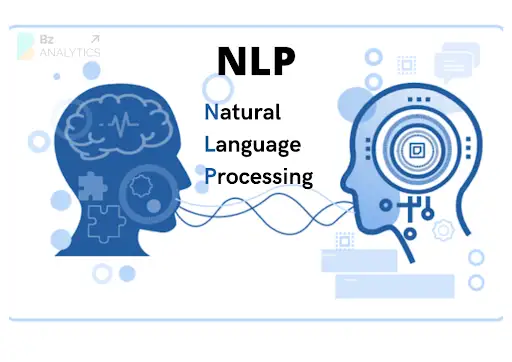
WhatsApp Chatbots use Natural Language Processing (NLP) technology to communicate with customers.
NLP enables chatbots to understand human language input in a way that they can decode the meaning behind questions, keywords, and phrases.
They can respond to customers using automated responses or easily acknowledging details such as order placement and tracking.
Backend Systems and Databases
To handle customer interactions, chatbots depend on backend databases that store customer data and order information and can execute transactions seamlessly.
The chatbot database should be connected to the brand’s order management and inventory system, enabling the chatbot to manage orders and respond to customer queries quickly and effectively.
Suggested Reading:
Use WhatsApp Ecommerce Chatbot for your business growth
Features and Capabilities of WhatsApp Chatbots
WhatsApp Chatbots come packed with various features and capabilities, making them an ideal solution for e-commerce businesses. Let's explore some of the key features:
Automated Responses to Frequently Asked Questions
One of the primary capabilities of WhatsApp Chatbots is to provide automated responses to frequently asked questions.
The chatbot can instantly provide relevant answers by analyzing customer queries, saving time for both the customer and the business. The chatbot can handle many commonly asked questions, from shipping information to return policies.
Order Placement and Tracking
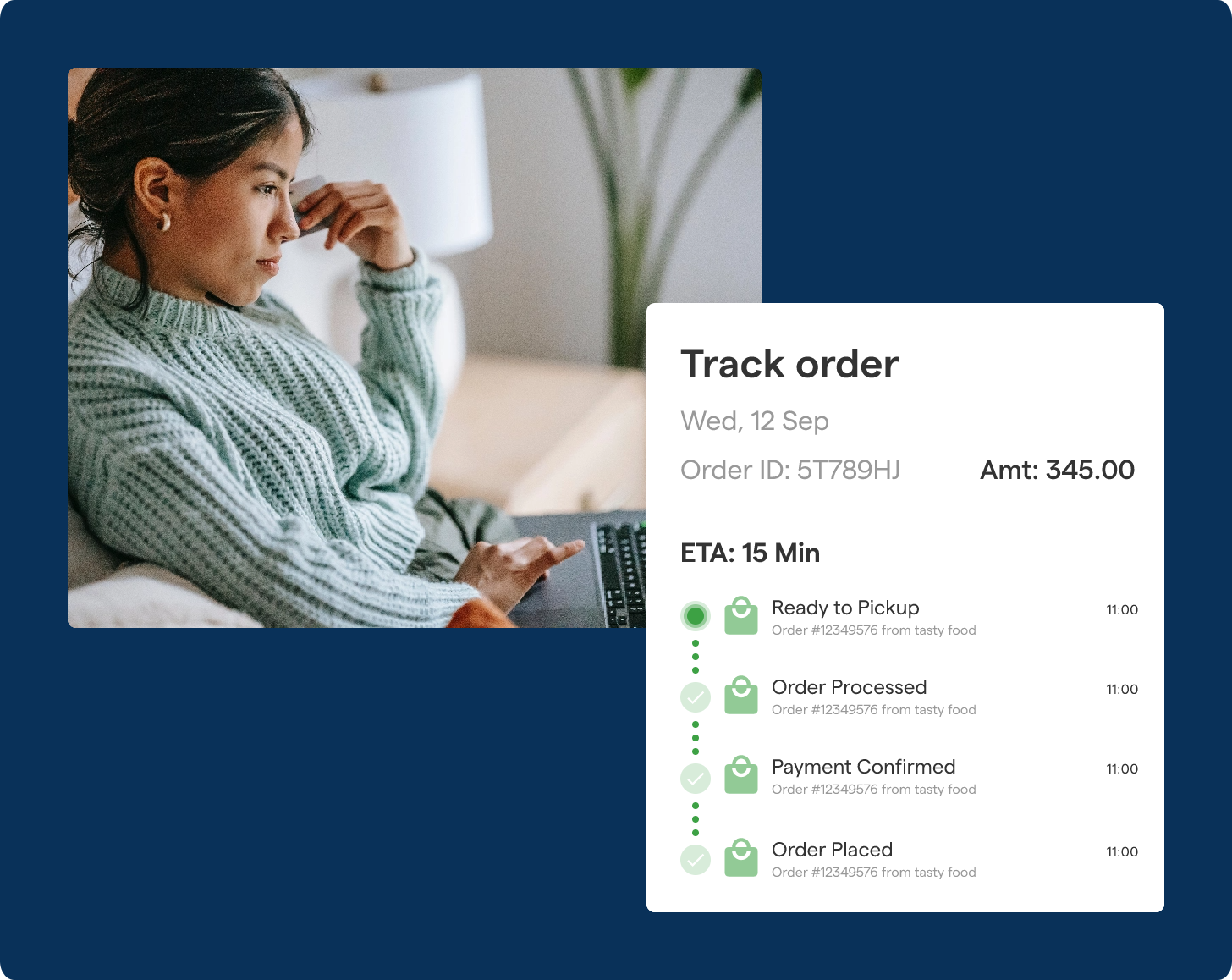
WhatsApp Chatbots streamline ordering by allowing customers to place orders directly through the chatbot. Customers can provide the necessary information and complete the transaction seamlessly.
Additionally, the chatbot can provide real-time updates on the order status, eliminating the need for customers to reach out to customer support.
Product Catalog Browsing and Recommendations
Enhancing the shopping experience is another key strength of WhatsApp Chatbots.
With access to the business's product catalog, the chatbot can provide customers with personalized recommendations based on browsing history, previous purchases, and preferences.
This capability helps customers discover new products and increase business sales.
Seamless Integration with Payment Gateways
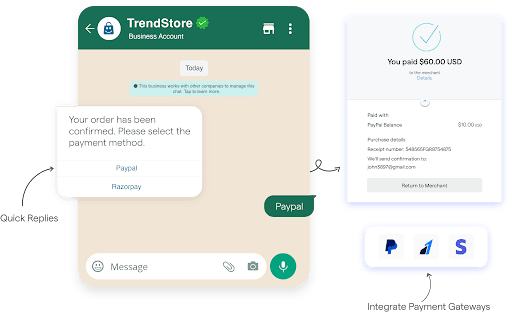
To ensure a smooth ordering process, WhatsApp Chatbots can integrate with various payment gateways, allowing customers to complete their transactions conveniently.
Whether credit card payments, digital wallets, or bank transfers, the chatbot can securely handle the payment process, ensuring a secure and efficient customer experience.
Best Practices for a Successful WhatsApp Chatbot
WhatsApp Chatbots are a valuable tool for e-commerce businesses looking to boost customer service. To ensure their success, follow these best practices:
User-Friendly Design
Make the chatbot interface intuitive and easy to use. Use clear language, visuals, and simple menus for a hassle-free experience, helping customers find information quickly.
Suggested Reading:
Top 10 Use Cases and Applications of Whatsapp chatbot
Engaging Conversations
WhatsApp Chatbots excel at creating engaging interactions.
Use warm, natural language and program the chatbot to respond authentically to common questions. Building engaging interactions fosters strong customer relationships and brand loyalty.
Regularly Updating and Improving the Chatbot's Knowledge Base
Keeping the chatbot's knowledge base up-to-date is essential to providing accurate and helpful information to customers.
This involves regularly adding new content related to products, services, and other relevant information and promptly responding to customer feedback and questions.
By ensuring that the chatbot's knowledge base is comprehensive and current, businesses can improve the chatbot's effectiveness and increase customer satisfaction.
Monitoring and Analyzing Chatbot Performance Metrics
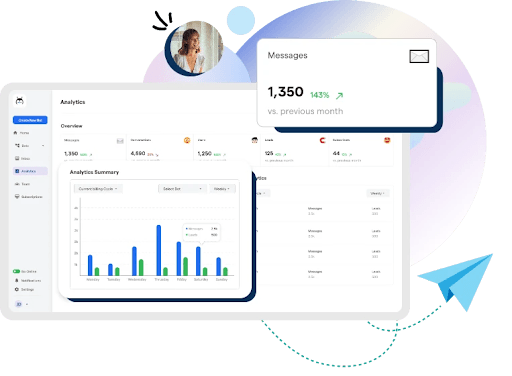
To ensure that the chatbot is performing at its best, it's important to monitor and analyze its performance metrics regularly.
This includes tracking metrics such as conversation duration, customer satisfaction ratings, and accuracy of responses.
By analyzing these metrics, businesses can identify areas for improvement and make data-driven decisions to optimize the chatbot's performance.
Suggested Reading:
How to Send Bulk Messages on WhatsApp: Step-by-Step Guide
Future Trends and Developments in WhatsApp Chatbots
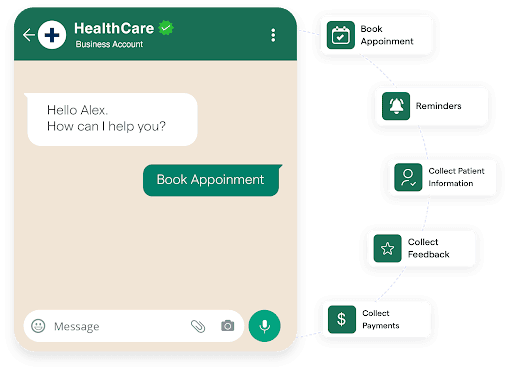
As the use of WhatsApp Chatbots continues to grow, we can expect to see several exciting developments and trends in the near future:
Integration with Voice Assistants and Smart Speakers
With the increasing popularity of voice assistants and smart speakers, we expect to see integration between WhatsApp Chatbots and these technologies.
This may involve using voice commands to initiate conversations with the chatbot or having the chatbot respond to queries in real-time through smart speakers.
Adoption of Advanced AI Technologies like Machine Learning and Predictive Analytics
As AI advances, we can expect to see WhatsApp Chatbots adopting more sophisticated technologies like Machine Learning and Predictive Analytics.
This enables the chatbot to understand customer preferences and behavior better and provide more personalized and effective support.
Expansion of Chatbot Capabilities with Multi-language Support and Sentiment Analysis
To create a more inclusive and engaging customer experience, we expect WhatsApp Chatbots to expand their capabilities to include multi-language support and sentiment analysis.
This can help businesses better understand customer sentiment and provide more effective conversations across different languages.
Conclusion
WhatsApp Chatbots can be turning points for e-commerce organisations, offering a variety of features and capabilities that improve customer assistance, streamline operations, and improve the shopping experience.
Chatbots can help organizations save time, cut expenses, and increase sales by providing automatic responses and personalized recommendations.
By following best practices like designing intuitive interfaces, creating engaging interactions, and regularly updating knowledge bases, businesses can maximize the chatbot's effectiveness and drive customer satisfaction.
With the future trend of advanced AI technologies, multi-language support, and integration with voice assistants and smart speakers, WhatsApp Chatbots are poised to revolutionize the e-commerce industry.
Before you start making WhatsApp chatbots, remember the platform's limitations. Building a bot from scratch can be tough and time-consuming.
Instead of doing it alone, work with experts.
BotPenguin makes it easy to use WhatsApp effectively with AI-driven chatbots designed to boost marketing results.
Our flexible platform lets you create personalized chat experiences for WhatsApp, improving engagement and providing valuable analytics.
Join many other businesses that trust BotPenguin for WhatsApp marketing.
Don't let complexity slow you down. With us, you have everything you need to succeed with chatbots on WhatsApp and become a leader in your industry.
Sign up today!
Suggested Reading:
11 ways WhatsApp Chatbot Integration Can Boost Your Business
Frequently Asked Questions (FAQs)
How can WhatsApp Chatbots improve customer support for e-commerce businesses?
WhatsApp Chatbots can provide 24/7 support, answer FAQs, provide personalized recommendations, and handle routine tasks, resulting in faster response times and improved customer satisfaction.
Are WhatsApp Chatbots cost-effective for e-commerce businesses?
Yes, WhatsApp Chatbots can significantly reduce costs by automating customer support tasks, allowing human agents to focus on more complex issues.
Can WhatsApp Chatbots help increase sales for e-commerce businesses?
Absolutely! By offering personalized product recommendations, assisting with the shopping process, and providing quick responses to customer queries, WhatsApp Chatbots can help drive sales and boost conversion rates.
How can I design an intuitive and user-friendly WhatsApp Chatbot interface?
To create an intuitive interface, use clear and concise language, incorporate relevant images and media, and provide easy-to-navigate menus and buttons.
On the other hand, if you can't create a chatbot on your own, you can use an AI chatbot development service for e-commerce.


